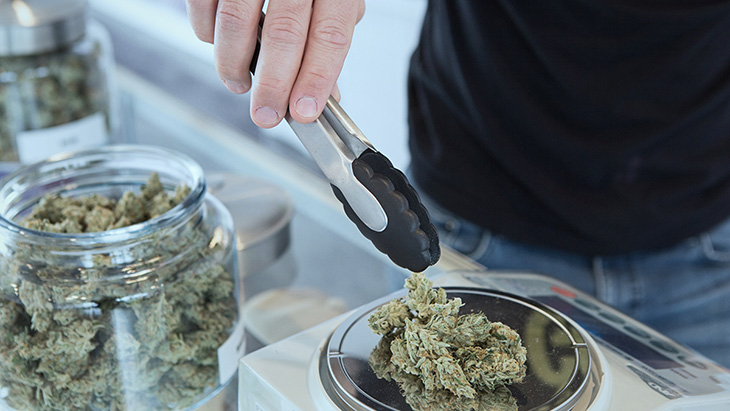America is in the midst of its second-ever nationwide cannabis legalization wave. While most states legalized medical and/or recreational marijuana through ballot initiatives, New Jersey’s bill was passed by legislators instead. As a result, there are some unique considerations for those who’d like to open a dispensary in New Jersey versus other states. If you’re interested in opening up your own cannabis dispensary in New Jersey, here are some things you’ll need to know:
Review the NJ Senate Bill S2703
If you’re thinking about opening a cannabis dispensary in New Jersey, it’s important to be familiar with the current state of cannabis legislation. NJ Senate Bill S2703, passed on April 12th, 2019, is a bill that will allow for medical marijuana dispensaries and recreational cannabis dispensaries. However, this bill does not legalize recreational use of marijuana and only allows people over 21 years old to purchase medical marijuana from licensed dispensaries.
This means that if you have been convicted of a drug-related offense (including possession) within the last 10 years or have an outstanding warrant, you are not eligible for licensure under this new legislation. Additionally, if you live within 1 mile of any school zone or park zone, then your application will be rejected outright by the Department of Health (DOH).
Research local laws and ordinances
When you’re researching potential locations and studying local ordinances, it’s important to check the zoning laws in the area. This will help you determine if a particular location is suited for your business. You’ll want to look into parking restrictions, noise and odor ordinances, and signage restrictions if applicable.
You also want to ensure you have the proper licensing to operate without legal issues. A New Jersey cannabis license is needed and should be handled during the early stages of business planning.
Also age restrictions are worth checking into before deciding on a location for your cannabis dispensary in New Jersey.
Prepare your financials
When it comes to opening a cannabis dispensary in New Jersey, one of the most important steps is developing a solid financial plan. A strong business plan can help you avoid making costly mistakes and ensure that you have everything covered for when it comes time to open your doors.
Here’s what we recommend:
- Understand the financial requirements and regulations for opening a cannabis dispensary in New Jersey.
- Develop a detailed business plan with projections for revenue, expenses, cash flow, and other factors that will impact your bottom line. Make sure you include any costs associated with licensing fees or required renovations on your building (if applicable). Also, consider how much money you need to spend upfront for equipment and supplies as well as marketing costs such as advertising campaigns or sponsorships at local events like farmers’ markets where people come together to support local businesses like yours!
- Know how much tax burden there will be on top of this investment before making any final decisions about whether or not opening up shop makes sense financially speaking.”
Opening a cannabis dispensary in New Jersey is not simple. There are dozens of factors and regulations to know about, and it’s important to be prepared for a lot of red tape. The bill is very complicated, so you will need to do your research to stay ahead of any foreseeable issues.
Conclusion
Opening a cannabis dispensary in New Jersey is not simple. There are dozens of factors and regulations to know about. Taking the items listed in this article into account will drastically help you avoid any issues or concerns during your quest to open a cannabis dispensary in NJ.
Best of luck!
Medical Disclaimer:
The information provided in these blog posts is intended for general informational and educational purposes only. It is not a substitute for professional medical advice, diagnosis, or treatment. Always seek the advice of your physician or other qualified healthcare provider with any questions you may have regarding a medical condition. The use of any information provided in these blog posts is solely at your own risk. The authors and the website do not recommend or endorse any specific products, treatments, or procedures mentioned. Reliance on any information in these blog posts is solely at your own discretion.






